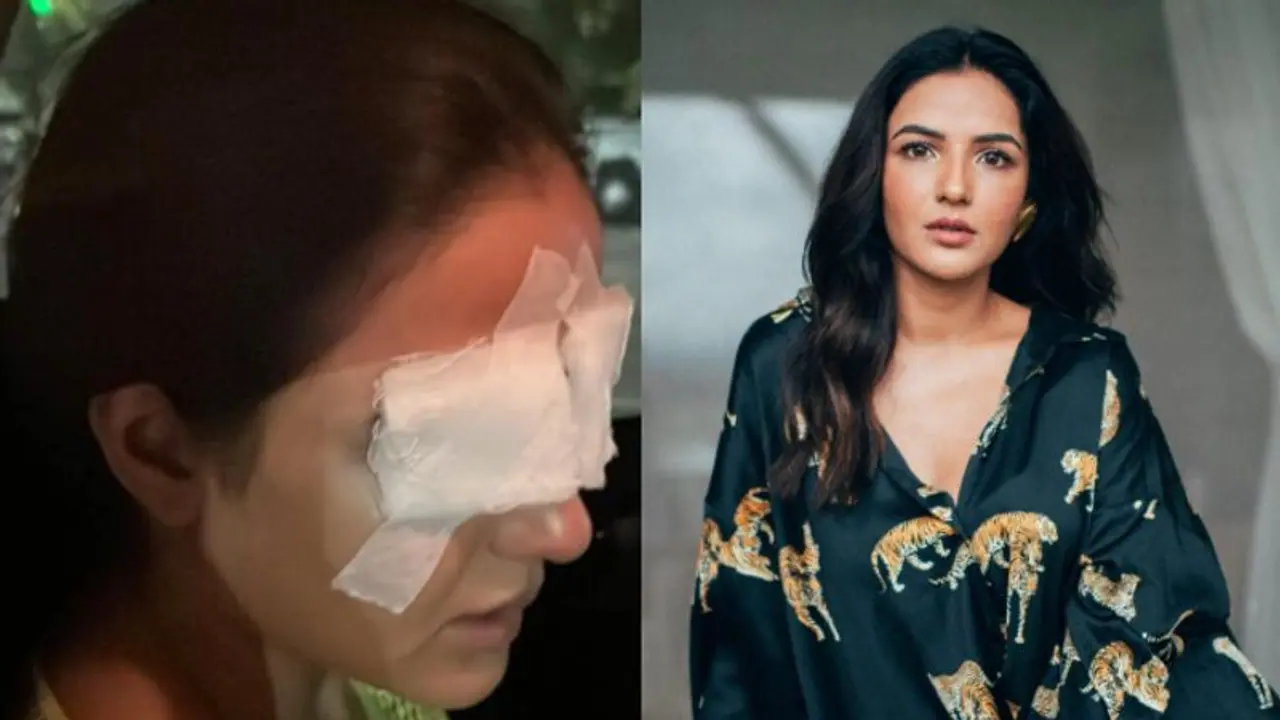Jasmine Bhasin has been diagnosed with corneal damage after she suffered discomfort in her eyes. The doctors have advised her that she should recover in four to five days.
Television actress Jasmine Bhasin has said that a recent incident with her contact lenses damaged her corneas, and she is currently undergoing treatment. She stated that the trouble began on July 17 when she wore the lens to an event. However, she began to feel discomfort, which worsened, and she was unable to see anything. She had no idea what was wrong with her lens, but after wearing it, her eyes began to hurt, and the pain worsened over time.

To avoid more issues, she donned sunglasses during the event, and the team assisted her with handling things once she became unable to see well. She did not go to the doctor since she had prior work commitments. Following the incident, she went to an eye doctor late at night, who diagnosed her with corneal damage and bandaged her eyes. The actress is in a lot of discomfort, and doctors have advised her that she should recover in four to five days.
Also read: Hardik Pandya, Ananya Panday's dance video goes viral, netizens say, 'Ambani ne bana di jodi'
Professional front
Jasmine made her acting debut in the Tamil film 'Vaanam' (2011). Her most notable performances were Twinkle Taneja in 'Tashan-e-Ishq' (2015-16) and Teni Bhanushali in 'Dil Se Dil Tak'. She also appeared on reality television shows such as 'Khatron Ke Khiladi' and 'Bigg Boss 14'. She also appeared as Happy Saluja in 'Dil Toh Happy Hai Ji' and Nayantara in 'Naagin 4: Bhagya Ka Zehreela Khel'. Jasmine made her Punjabi cinema debut in the comedy-drama 'Honeymoon' (2022), starring Gippy Grewal. Currently, she is dating Aly Goni.
The role of Cornea
The cornea is the eye's clear, outermost layer, essential for focusing light and enabling clear vision. Composed of specialized layers, it refracts light into the eye, contributing significantly to its two-thirds of the eye's focusing power. Being avascular, it relies on tears and aqueous humor for nutrients, maintaining transparency crucial for light transmission.
Highly sensitive, it triggers protective reflexes like blinking to shield from foreign objects. Various conditions like abrasions, ulcers, and infections can affect it, necessitating treatments such as transplants. Ultimately, the cornea's integrity ensures light enters the eye optimally, supporting visual clarity and eye health.
